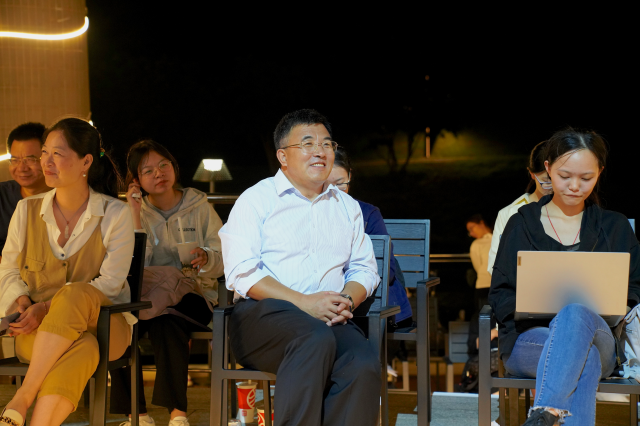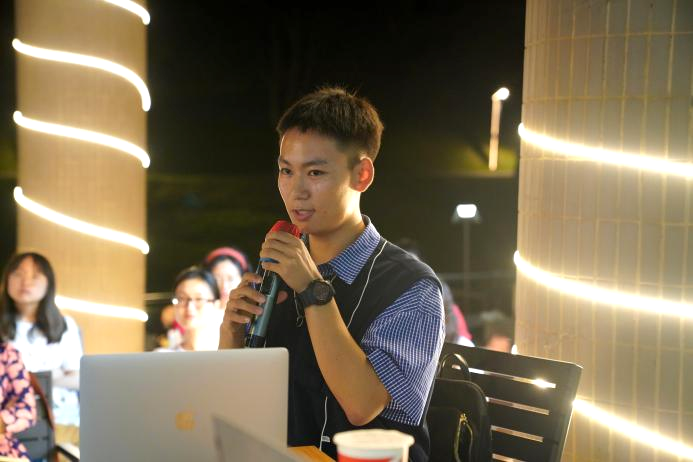On the evening of October 29th, the Future Education School hosted the second session of its "Collective Intelligence in Education" international academic salon series at the lakeside platform outside the A101 building. The Intelligent Education Center of the School invited Professor Rupert Wegerif, Director of the Future Digital Education Center at the University of Cambridge, to give a wonderful report entitled "Designing Education for Collective Intelligence: A Research Agenda" online for teachers and students at the Zhuhai campus. More than 200 teachers and students from the Zhuhai campus, including Dean Zheng Guomin, Vice Deans Sun Bo, Xiang Benqiong, and Hu Yongjian, attended the event.
In his speech, Zheng Guomin expressed his expectation that the salon activities will bring more opportunities for communication and learning to teachers and students, allowing them to timely understand the trends in future education development and the latest international academic research achievements.

Firstly, Professor Rupert Wegerif emphasized the importance of "Collective Intelligence" in education. He believes that in the future world, "Collective Intelligence" will be extremely important in all walks of life, so teachers need to cultivate students' teamwork and problem-solving abilities. He said that "dialogue teaching" can improve students' ability to think collectively, and that mutual encouragement among classmates and the humane care given by teachers to give every student equal participation opportunities can help improve their ability to think collectively.
Regarding how to help students improve their Collective Intelligence, Professor Wegerif showcased specific practical methods using the intelligent platform developed by his team as an example. He said that Swarm AI connects, compares, and classifies different viewpoints; Edubots is used to exercise and expand students' thinking; and Argunaut uses intelligent technology to support online discussions, analyzing the quality of conversations between students and teachers or between students, measuring their understanding and creativity, etc.
At the end of the lecture, Professor Wegerif explained the necessity of researching Collective Intelligence and proposed feasible research directions: literature review research on the development of Collective Intelligence in the education field under the environment of artificial intelligence; exploring design-based research to improve students' ability to think collectively in group learning using automatic sorting and dialogue software; using visual and linguistic tools to support student groups in solving global problems such as climate change through cooperative learning; continuing to develop the application potential and functions of Argunaut, such as improving the quality of idea sharing, discussion, and communication in MOOC courses.

During the discussion and sharing session, teachers and students from the Future Education Institute had a lively discussion with Professor Wegerif on "Collective Intelligence", "understanding of dialogue education", and the problems and confusion encountered in teaching.

At the end of the event, Dean Zheng Guomin expressed his expectation that Cambridge University and the institute can further carry out more cooperative exchange projects. With warm applause from teachers and students, the event ended successfully.



 Last Page
Last Page

 Phone:0756-3621121
Phone:0756-3621121
 Email:ccie@bnu.edu.cn
Email:ccie@bnu.edu.cn